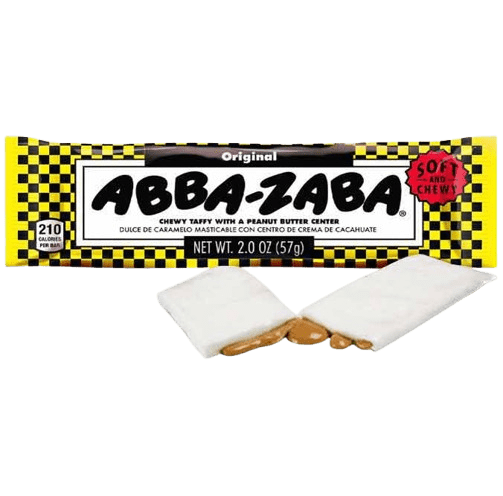The 2 oz. Abba Zabba Candy Bar is a timeless treat that combines rich, creamy peanut butter with irresistibly chewy taffy. Unwrapping this iconic candy reveals a perfect balance of sweet and savory, offering a satisfying experience for your taste buds.
The history of the Abba-Zaba bar goes all the way to 1922. A little candy company called Colby and McDermott was manufacturing a new kind of candy bar in Los Angeles, California.
what made it a new kind of candy bar? The white taffy exterior and creamy peanut butter center did. Known as the Abba-Zaba bar, this stick-to-your-teeth confection became a huge hit out west, where they are still popular.
Those familiar with this candy bar recognize the black and yellow Taxi-cab-esque exterior and probably know of its scandalous past. If you’re not one of those familiar candy lovers, let me tell you short and skinny of it. Early Abba-Zaba wrappers from Colby & McDermott depict what appear to be African tribesmen in a jungle, sitting beside a taffy tree. And while this racially taboo packaging would never fly today, it didn’t do the brand any damage when the candy first came out.
The Abba-Zaba bar has also made numerous TV and movie appearances in its history, most notably due to its mention in the movie Half Baked.
try one today and I’ll bet you a dollar to a doughnut you will come to love this candy bar.



Reviews
There are no reviews yet.